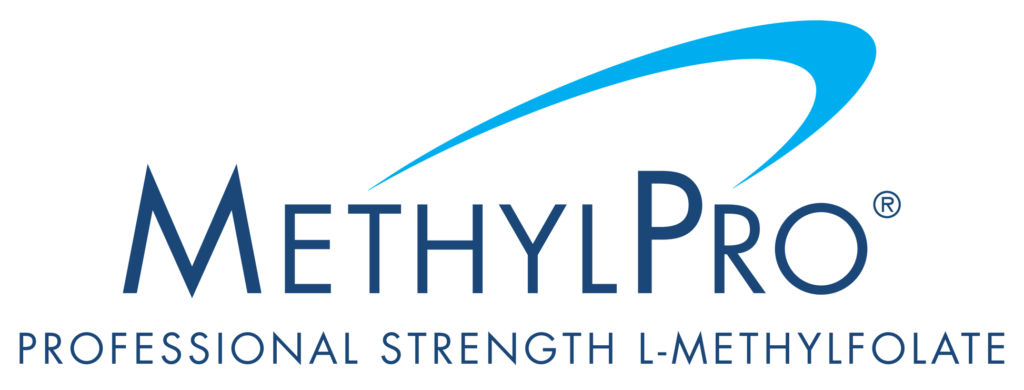Why Do We Need Testosterone?
Testosterone is a steroidal sex hormone responsible for many of the secondary sex traits we typically associate with “maleness”. It is, however, also necessary for physiological function in the female body too.
In males, circulating testosterone levels lead to the normal development of a penis and testes, from fetal development through puberty. During puberty, testosterone is responsible for a deepening voice, and the development of facial, pubic, and body hair. Throughout life, it plays a role in muscle building and bone strength, and the production of sperm.
Testosterone is important for female health too, and not only as it acts as a precursor to estrogen. In females, higher testosterone is associated with a stronger libido, a reduced risk of cardiovascular disease, enhanced cognitive performance, and improved musculoskeletal health after menopause [1].
Testosterone levels matter, as low testosterone (also known as androgen deficiency) is associated with a lower quality of life and higher rates of morbidity and mortality [2]. In men 40 and over, specifically, low testosterone levels are associated with metabolic issues, cardiovascular issues, as well as a consistently low mood [2].
What is “Normal” Testosterone Production?
Natural testosterone production differs between males and females in the normal range of abundance and the tissues that produce it. Normal testosterone levels in an adult female range from 15 to 70 nanograms per deciliter (ng/dL) and in post-pubescent males from 300 to 1,000 ng/dL [3]. Obviously, the difference is significant.
In males, the testes produce most testosterone that circulates the body, in females the ovaries produce most of the testosterone. However, adrenal glands can be responsible for abnormal testosterone levels. They sometimes produce an excess of other androgen hormones that the body converts to testosterone [3].
Why Might My Testosterone Levels be Low?
Sex hormone levels tend to decrease with age, in both males and females. Males in their mid-30s will likely begin to see a natural decline in testosterone that continues at a rate of 1.6% per year [4]. The incidence of low testosterone in the United States is approximately 20% in men older than 60, 30% in those older than 70, and 50% in those older than 80 years [4].
Age-related low T is quite common and natural. However, testosterone production may be abnormally low if you are chronically ill, have a dysfunctional pituitary gland or hypothalamus, have low thyroid function, delayed puberty, have a specific health issue in the testicles (trauma, immune issues, iron overload), a benign tumor of the pituitary cells that produce too much of the hormone prolactin, too much body fat , sleep problems, or chronic stress from too much exercise (overtraining) [3].
Due to the multitude of possible causes, it is important to consult your physician if you have, or suspect you have, low circulating testosterone levels.
How are Low T and Mood Related?
Testosterone levels influence mood, behavior, and quality of life [5]. The prevalence of declining into a consistently low mood tends to increase with age, in parallel to the decline of testosterone. Research has also shown an inverse relationship between the amount of free testosterone in male bodies and the number of mood episodes [6]. Because of this correlation, researchers have delved into the connection between low testosterone levels and mood challenges.
Specifically, the literature demonstrates a link between testosterone levels and males with treatment-resistant low mood, males with a low mood and immune issues, males with dysthymia, and elderly males (aged >60 years) with consistently low mood [6].
Testosterone is a neuroactive steroid that directly affects mood [5]. This has been demonstrated by animal models of mood in which testosterone administration increased serotonin release and neuroplasticity in the brain [5]. Both of these effects are central mechanisms of a balanced mood and promote more positive thought patterns [5].
Testosterone replacement therapy (TRT) has decreased low mood symptoms and sadness scores in numerous studies, confirming the link between testosterone and mood [5,6].
TRT Alternatives
Maybe TRT is not for you and you’d like to explore some natural ways to boost your testosterone. A few of those options are vitamin D, DIM, and ashwagandha.
To be clear, while nutrition can support your body’s natural pathways for hormone production, it is not a replacement for a prescription medicine or a treatment.
Vitamin D
One 2020 study reported a link between vitamin D status and testosterone levels [7]. Males with a vitamin D insufficiency had lower testosterone levels than those without insufficiency. This study also demonstrated strong evidence for a direct effect of vitamin D on testosterone production in the testes [7]. Together, these findings suggest that boosting vitamin D levels through supplementation may help to boost testosterone levels, especially if one is deficient.
Vitamin D supplements may also address issues of decreased libido. One study showed that vitamin D supplementation improved sexual function and mood in females [8].
A recent review also reported that vitamin D plays a key role in male sexual function [9]. As vitamin D deficiency brings a higher risk of erectile dysfunction, supplementation may ameliorate this issue [9].
DIM
Diindolylmethane (DIM) is a compound created when stomach acid breaks down cruciferous vegetables, such as broccoli or Brussels sprouts. It has been researched heavily as it can play a role in estrogen balance [10]. Of course, you would have to eat A LOT of cruciferous veggies to see the benefit of this chemical, which can be conveniently supplemented.
One of DIM’s activities is inhibiting the enzyme aromatase. Aromatase is responsible for the conversion of testosterone to estrogen. Slowing this conversion can help to maintain higher levels of testosterone, and balance different levels of estrogens in both males and females [10].
DIM has been shown to support prostate health (in males) [11], reduce or prevent the effects of estrogen on cells, reduce metabolic toxins, boost antioxidant levels, promote healthy weight maintenance, enhance memory and mood, reduce symptoms of premenstrual syndrome (in females), support cardiovascular health, and promote healthy muscle development [10].
Ashwagandha
Ashwagandha is the name of a plant that’s root extract is most famous for its benefits to those with excessive worry. It may also, however, boost testosterone production [2].
Of all the “testosterone booster” nutrients on the market, there is more evidence supporting ashwagandha’s use than nearly every other product, reports a 2021 study [2]. In fact, 8 weeks of supplementation with an ashwagandha root extract can result in a significant increase in both muscle strength and testosterone concentrations [12].
Although the study did not delve into the mechanism of action, researchers hypothesize that ashwagandha’s ability to regulate inflammation and antioxidant effects may be linked to increased testosterone concentrations, if the underlying cause of low testosterone is inflammation or oxidative stress [2].
References
- https://www.thelancet.com/journals/landia/article/PIIS2213-8587(15)00284-3/fulltext
- https://pubmed.ncbi.nlm.nih.gov/33150931/
- https://www.mountsinai.org/health-library/tests/testosterone#:~:text=Normal%20Results&text=Male%3A%20300%20to%201%2C000%20nanograms,0.5%20to%202.4%20nmol%2FL
- https://www.acpjournals.org/doi/full/10.7326/M19-0882
- https://onlinelibrary.wiley.com/doi/full/10.1111/andr.12867
- https://www.sciencedirect.com/science/article/pii/S0033318213001333
- https://www.sciencedirect.com/science/article/abs/pii/S0960076019305680
- https://journals.viamedica.pl/endokrynologia_polska/article/view/55292
- https://www.ncbi.nlm.nih.gov/pmc/articles/PMC7752519/
- https://www.webmd.com/vitamins-and-supplements/health-benefits-dim#:~:text=DIM%20supplements%20appear%20to%20help,that%20are%20linked%20to%20estrogen.
- https://web.s.ebscohost.com/abstract?direct=true&profile=ehost&scope=site&authtype=crawler&jrnl=01603922&AN=151962611&h=ckrqYy0%2b44SrkdpOprXzd3cvi6JDCGZDby4s8QY29jghtds00DIxclSy309zl6vEljH4mGFukwzXwBTDeOdfjQ%3d%3d&crl=c&resultNs=AdminWebAuth&resultLocal=ErrCrlNotAuth&crlhashurl=login.aspx%3fdirect%3dtrue%26profile%3dehost%26scope%3dsite%26authtype%3dcrawler%26jrnl%3d01603922%26AN%3d151962611
- https://www.tandfonline.com/doi/full/10.1186/s12970-015-0104-9

